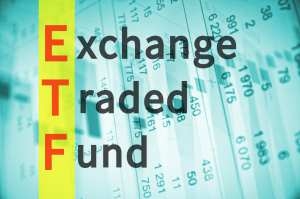

There are a lot of ways to invest in gold, but not all options are created equal. If you’re new to commodities investing, you may have come across the option of investing in gold through an exchange traded fund, commonly referred to as an ETF. For investors who aren’t sure about storing physical gold, an ETF can look like an attractive option.
Unfortunately, gold ETFs really aren’t the same thing as buying physical gold, and they come with their own distinct risks. If you’re entertaining the idea of investing in a gold ETF, you should be well aware of what you’re getting into.
With ETFs, You Don’t Actually Own Gold, Just Paper

For a lot of people, the whole point of buying gold is to get away from a dependence on currency and the stock market, but ETFs work more like currency or stocks than buying physical gold. In most cases, an ETF investment will never translate into owning physical gold itself – you don’t actually have access to the item you’re supposedly buying. If someone with ETF shares wants to convert their shares into the gold they supposedly represent, the fund has every right to refuse.
Instead, the most you get is assurances on paper (or online) that your investment in the fund is tied to actual gold that someone else holds onto and you never actually see. In that sense, ETFs work like any other stock – just stocks whose value rise and fall with the spot price of gold.
In spite of that, tax law treats ETF shares like a “collectible” rather than stock, so you still get taxed on an ETF investment at the same rate as physical gold. You don’t get the benefits of full ownership, but you still get the tax liability.
ETFs Come With Counterparty Risks

This is one of the biggest issues with ETFs. Because you don’t have direct access to the gold you’re trying to invest in, you’re trusting someone else to hang onto it and make sure it’s secure, insured, managed and handled properly. With ETFs, there actually end up being a lot of someones you’re trusting to care for the gold behind your investment in an ETF. The increased layers of trust increase what investors call “counterparty risk.”
You see, those multiple other parties aren’t always trustworthy.
A popular gold ETF, the iShares Gold Trust (IAU), made news last year when they had to temporarily suspend all new shares due to an administrative error that meant they hadn’t properly registered their gold shares with the SEC.
The custodian of another popular ETF, SPDR Gold Shares (GLD) is a bank with a history of money laundering, which doesn’t speak well to their level of trustworthiness.
And those are two of the top options for gold ETFs out there.
With an ETF, there are a lot of institutions, people, and administrative layers between you and the gold. Most ETF investors don’t really know what the security is like where the fund’s gold is stored, if the quantity of gold stored matches what the fund has sold, and whether or not the fund is actively lending out the gold you supposedly own to make more profit on it. They just have to hope the gold they’re told is theirs actually is.
The behaviors of the people and institutions involved in the ETF can place your investment at risk due to no fault of your own and for reasons entirely independent of the larger market. If you want your investment to truly be yours and not in the hands of potentially sketchy institutions, it’s best to buy your gold outright.
Fees Eat Into Your Investment

When you buy physical gold, you may face some fees or a markup at the time of purchase, but once you own it, it’s yours. With ETFs, you face continuous fees for the life of your investment. With management fees, marketing fees, and fees related to the taxes the fund incurs when they sell gold – over time you’ll watch the value of your investment diminish little by little as the fees eat into any profits you make.
Due to these fees, a consumer that buys the same amount of gold in an ETF will end up with less profit the longer they hold onto their shares than one that goes for physical gold. Fees are a part of life in many things, but they don’t have to be an ongoing part of your gold investment.
ETFs Are Part of the Banking System

For any investor interested in gold due to concerns about the integrity of the banking system, an ETF won’t provide any peace of mind. The storage, management, and custodianship of the gold in an ETF all fall to the kinds of financial institutions most gold investors seek to avoid.
If you want to take your investment into your own hands, rather than trusting a bank, then you should steer clear of gold ETFs and invest in gold the old fashioned way: by buying gold you can see, hold, and store on your own terms.
For some investors, gold ETFs may make sense. For most of the reasons people choose to invest in gold though, they’re not a worthy alternative to the real thing. Gold you can hold in your hand is undeniably yours. You know where it is and how to access it at all times, and you never have to worry about someone else’s carelessness costing you. If you want to invest in gold, there’s simply no beating the real thing.
Posting in: